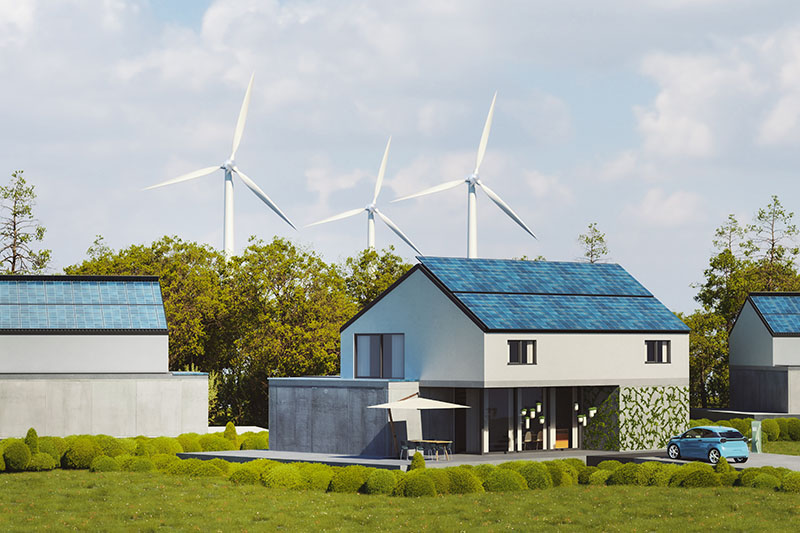In 2023, it will have been four years since the UK became the first G7 nation to legally pledge its commitment to net zero greenhouse gas emissions by 2050.
Recently, the war in Ukraine and widespread economic struggles have dominated headlines, pushing many important climate change discussions into the backburner. Despite the shift in focus, environmental issues are no less persistent.
Amongst the doom and gloom, there is some positive news; the UK property sector has made significant progress towards the government’s target of achieving net zero. In this week’s blog, we’re exploring the strides toward a carbon neutral economy made by the sector.

Being more energy efficient
One of the main ways in which the property sector is helping the UK achieve its net-zero objectives is through the implementation of energy-saving measures. This involves the construction of new homes that comply with rigorous energy efficiency standards and upgrading existing homes by installing improved insulation, low-efficient lighting and efficient boilers.
From 2008 to 2020, there was an 11% rise in the number of buildings that had complete cavity wall insulation, a 16% increase in property with double glazing and an 18% increase in buildings with loft insulation. These measures have a positive impact on both the environment by reducing carbon emissions, and a property owner’s finances by lowering their gas and electricity bills – helping them meet the incoming the incoming minimum EPC rating requirement of C or above by 2035.
Goodbye gas
Gas boilers are responsible for as much as 20% of UK carbon emissions – that’s double the carbon dioxide of all gas-fired power stations in the country. Thankfully, the move away from traditional heating systems has already begun, with the industry already looking towards a far more energy-efficient replacement – heat pumps.
The Government is aiming to install 600,000 heat pumps by 2028. This target must be met, particularly when new legalisation aims to ban the installation of gas boilers in new builds after 2025. Of course, the gas boiler ban doesn’t apply to properties that were built before 2025.
There are other methods of renewable energy that are helping the property sector reach its net zero aspirations – these include wind and solar power. Even though solar panels are not yet prevalent, and only a small proportion of homes in England (around 1 in 30) have them, their adoption rate is rapidly growing. Year by year, there is a considerable increase in their installation, with a 71% rise in 2021 compared to the previous year.

EV vehicle charging
The Clean Air Strategy of 2019 set out how the government is tackling all sources of air pollution to help protect the nation’s health and the environment, while securing clean growth and innovation. One of the key points was the widespread adoption of electric vehicles; a natural progression that the property sector has anticipated and prepared for with the installation of charging points in new developments.
The aim of this is to make the use of low-carbon transportation easier than ever before. As of 1 January 2023, there were 37,055 electric vehicle (EV) charging stations in the UK, more than double the number at the beginning of 2020. Around 32% of these are located on residential streets, with many more being installed in residential block car parks.
Moving forward
Even though great progress has been made, the property sector cannot afford to be complacent, as there is still a long way to go to achieve net zero emissions. However, acknowledging what has been done right thus far can motivate businesses and organisations to keep seeking solutions for the future.
Since Targetfollow’s inception in 1992, we have been able to acclimatise to the ever-changing landscape. To do this we are working to improve reporting and reduce emissions via energy efficiency at each location in our portfolio. We have retained the agility intrinsic to our years of success and are carefully examining new ways to operate in cohesion with our environment. Our team of experienced asset managers ensure that all of our projects are approached with sensitivity and consideration for local communities, natural habitats and the welfare of the planet.
Be sure to frequently visit our website and follow us on Facebook, Twitter and LinkedIn to stay abreast on our latest acquisitions and sales.






